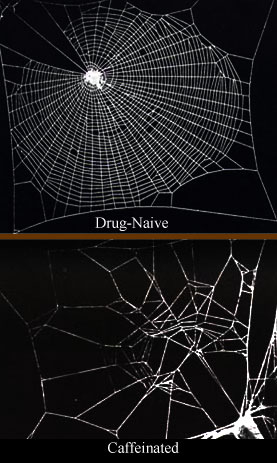
Love a cup of coffee in the morning? You might want to reconsider your choice of morning beverage.
Caffeine is a psychostimulant which means that it has mood enhancing and stimulant qualities. You probably consume caffeine in the form of coffee or fizzy drinks with the aim of increasing your alertness and combatting fatigue, but it has negative effects too and may contribute to your anxiety.
1. Caffeine blocks happy hormones.
Caffeine affects the chemicals in our brains in a number of different ways but of particular relevance to those with anxiety is that it inhibits a couple of hormones that contribute to how happy we feel.
First, caffeine blocks the calming neurotransmitter GABA which is essential for feeling relaxed. Second, caffeine is linked to decreased serotonin levels. Serotonin is important because it regulates anxiety, happiness and mood.
2. Caffeine increases insomnia
Caffeine stays in your system for a long time after you have consumed it and affects both the quantity and quality of your sleep. One study found that consuming caffeine 6 hours before bedtime reduced total sleep time by 1 hour. This makes it difficult to get a good night’s sleep – which is important for mental health issues like anxiety.
3. Caffeine can cause panic attacks
You may be surprised to discover that caffeine is used to induce panic attacks for research purposes!
In one study, when participants with anxiety disorders were given 480 mg of caffeine, 61% of those with panic disorder experienced caffeine-induced panic attacks.
4. Caffeine increases stress hormones
Caffeine increases the stress hormones: epinephrine and cortisol. These hormones increase your heart rate and blood pressure as well as affect glucose levels.
Levels of cortisol after caffeine consumption are similar to those experienced during an acutely stressful situation. In other words, when you drink coffee you are recreating stress conditions in your body.
5. Caffeine affects women more than men
Women cannot tolerate caffeine as well as men due to their hormones.
The length of time it takes to process caffeine is longer for women than men, particularly if on birth control pills or pregnant, which means that any negative side effects last longer.
Caffeine can also worsen any anxiety caused by premenstrual syndrome or the menopause.
How you can visualise the effect of caffeine
Still not convinced? Then have a look at the results of this study which illustrates what happened to a spider when it was given caffeine. You can see that the spider’s ability to spin a web deteriorated dramatically … it is almost as if it is a visual representation of anxiety:

So, I’ve decided to quit caffeine
Given the negative effects of caffeine, I’ve chosen to quit coffee, black/green tea and chocolate (almost!) to see if it helps reduce my anxiety.
Having weaned myself off it slowly, the withdrawal symptoms haven’t been too bad. Yet, rather oddly I am feeling slightly more anxious than usual today. It turns out that caffeine withdrawal can cause anxiety… the good news is that it should only last a few days!
I quit caffeine five months ago when my anxiety got so bad that I had trouble leaving my house. It was also when my doc started me on Zoloft. It helped me a lot- so did giving up caffeine. I really noticed how it affected me. Unfortunately, after a few caffeine free months, I started to drag again as my body adjusted to the meds. I brought it back in but at much reduced levels. I make a blend of 3/4 decaf 1/4 caf in the morning and it seems to perk me up without making me too anxious. I absolutely cannot have anything caffeinated after 3pm though- or sleep is impossible.
LikeLike
Hadn’t thought to mix decaf and caf coffee – good idea 🙂 So far I don’t miss coffee, but I do miss chocolate and diet coke!
LikeLike
I don’t know if I could quit caffeinated coffee for real. I drink it more out of habit and because I like the morning atmosphere of sipping my coffee while eating breakfast. But I do think some days I drink it too often. I used to have as many as 4 cups a day but now it’s more like 1-2 cups a day.
LikeLike